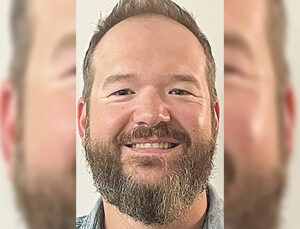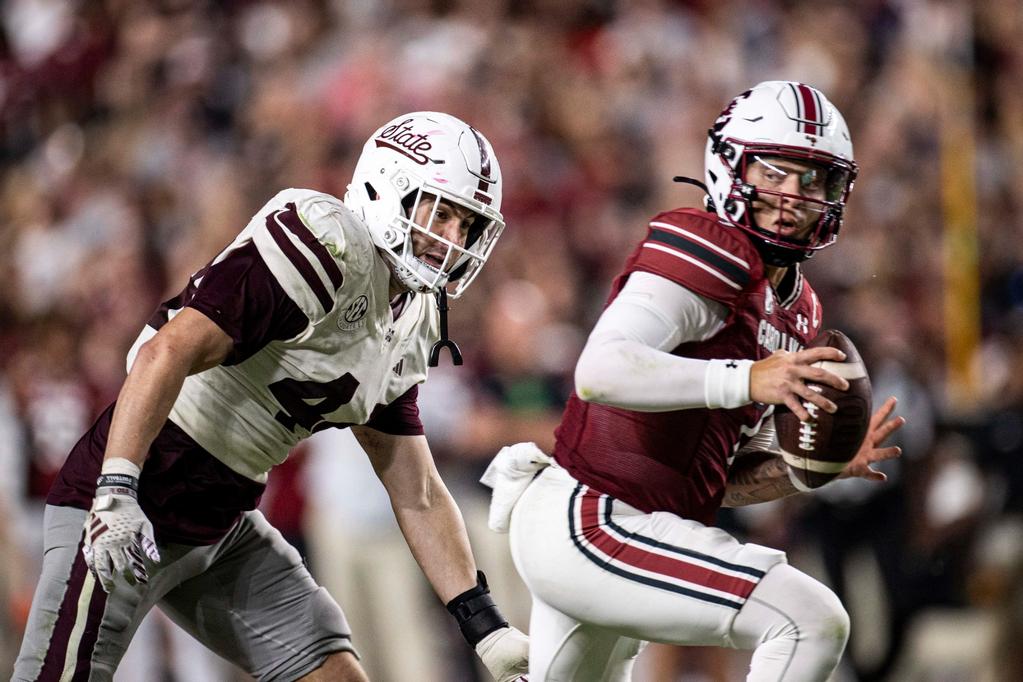COLUMBIA, S.C. — The wide empty spaces in pews between parishioners at a Sunday service at Zion Baptist Church in South Carolina’s capital highlight a post-pandemic reality common among many Black Protestant churches nationwide.
At its heyday in the 1960s, more than 1,500 parishioners filled every seat at Zion. But membership at the historic church — a crucial meeting point for many during the Civil Rights Movement — dwindled over recent decades.
The trend has been accelerated by the COVID-19 pandemic, which infected and killed Black Americans at a disproportionate rate. Zion’s attendance dropped from 300 parishioners before the outbreak to 125 now.
Founded in 1865, Zion still has a choir capable of beautiful singing, but it also shrunk by more than half. The stomping of feet and the call-and-response of the leader and congregation have dimmed from what they were before the pandemic.
“It saddens my heart,” said Calvernetta Williams, who has worshipped at Zion for 40 years. “The pastor has a lot of outreach to do, and so do we … because it’ll never be the same.”
Zion’s shrinking attendance is in line with a recent Pew Research Center survey; it found significant attendance drop among Black Protestants that is unmatched by any other major religious group. The number of Black Protestants who say they attend services monthly has fallen from 61% in 2019 to 46% now, said Pew, and they are the only group in which more than half (54%) attend services virtually.
Zion broadcasts services online, produces digital content and is active on social media. But the Rev. M. Andrew Davis said his church’s virtual experience can’t match in-person interactions, including the smiles of children, and how sometimes older congregants share testimonials about how God healed them.
Davis’ sermon on a recent Sunday was titled: “Trust during times of trouble.” He recalled the pandemic as one the most challenging times in his church’s history – and offered words of hope. “We may not ever go back to the way it was, but we can do better,” Davis told parishioners.
Black Americans — two-thirds of whom are Protestant — attend church more regularly than Americans overall, and pray more often, surveys show. But patterns of worship are shifting across generations: younger Black adults attend church less often than their elders, and those who attend are less likely to do so in a predominantly Black congregation.
“It’s imperative that we get our young people back,” said Donnie Mack, a deacon at Zion. “As we say in old churches — if you don’t see any young people, if you don’t hear any babies crying, then, you’re at a dying church.”
Several Black church leaders said it’s proved difficult to convince members to return for in-person worship. They note that many congregants are older, have inadequate access to health care, and hesitate to return to church for fear of catching a contagious illness.
Black adults also suffer from higher rates of obesity, diabetes and asthma, making them more susceptible. They are also more likely to be uninsured.
Additionally, many Black working people had jobs deemed essential and were less able to work from home during the pandemic, raising concerns about exposing others in their often crowded households to the virus.
“The pandemic exasperated that,” said the Rev. Quardricos Driskell, pastor at Beulah Baptist Church in Alexandria, Virginia.
Attendance at his 160-year-old church dropped from a peak of more than 200 people who met in two Sunday services in the early 2000s, to less than half that at a single service. “We’re lucky if we have 100 on any given Sunday,” Driskell said.
Despite the attendance drop, academics, pastors and parishioners agree that churches remain fundamental to Black communities, providing refuge and hope.
“No pillar of the African American community has been more central to its history, identity, and social justice vision than the ‘Black Church,’” Harvard scholar Henry Louis Gates Jr. wrote in ‘The Black Church,’ his companion volume to the PBS series.
“For a people systematically brutalized and debased by the inhumane system of slavery, followed by a century of Jim Crow racism, the church provided a refuge: a place of racial and individual self-affirmation, of teaching and learning, of psychological and spiritual sustenance, of prophetic faith.”
Although there’s broad respect for the historical role of Black churches, including their crucial role fighting for racial equality, polls show that there’s also a perception among Black Americans that they have lost influence in recent decades.
“It still functions in the same way: It’s a source of hope for people who cannot hold on to political promises, they can’t necessarily go to the law and get the things that we need and give them the safety that we need,” said Tamura Lomax, professor of religious studies at Michigan State University who specializes in the Black church.
But attendance had been dwindling — even before the pandemic and the 2020 protests over racial justice — because the way people connected to the church had changed, Lomax said. A pivotal moment came when the Black Lives Matter movement was founded. Its members, she said, embraced some of the African spirituality and religious practices that were taken from their ancestors during enslavement and rejected the Christ-centered movement that had been pivotal to the civil rights struggle.
“They didn’t want to carry the patriarchal kind of Black masculinity leadership model,” Lomax said.
During the pandemic, Black pastors used their influence to encourage vaccinations from the pulpit, while hosting testing clinics and vaccination events in church buildings.
The Rev. Eldren D. Morrison of Shaw Temple African Methodist Episcopal Zion Church in Georgia’s Cobb County, said in-person attendance plunged by half — from 400 worshippers to about 200 — since the virus outbreak. But the pandemic helped pastors like him rethink how to connect with their congregation.
“It’s teaching us that we’re not necessarily looking for numbers, but we’re looking for engagement,” Morrison said.
“Whether that’s virtual, or whether that’s people in pews or whether it’s through some type of ministry involvement throughout the community, people are involved with the church and are growing their faith. And that’s what the mission is in the end anyway.”
You can help your community
Quality, in-depth journalism is essential to a healthy community. The Dispatch brings you the most complete reporting and insightful commentary in the Golden Triangle, but we need your help to continue our efforts. In the past week, our reporters have posted 36 articles to cdispatch.com. Please consider subscribing to our website for only $2.30 per week to help support local journalism and our community.







